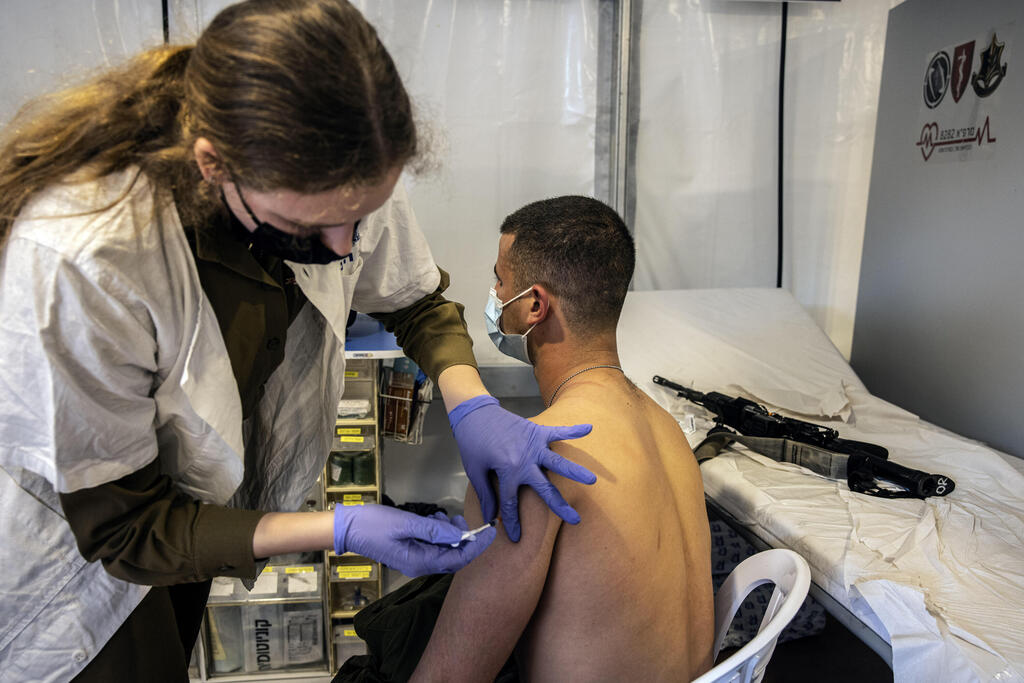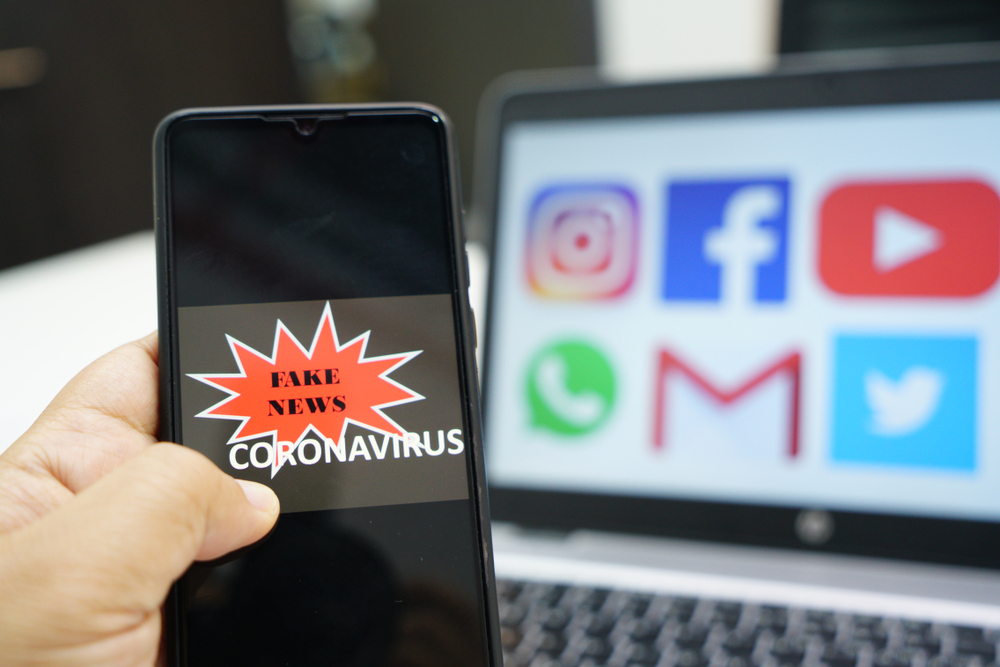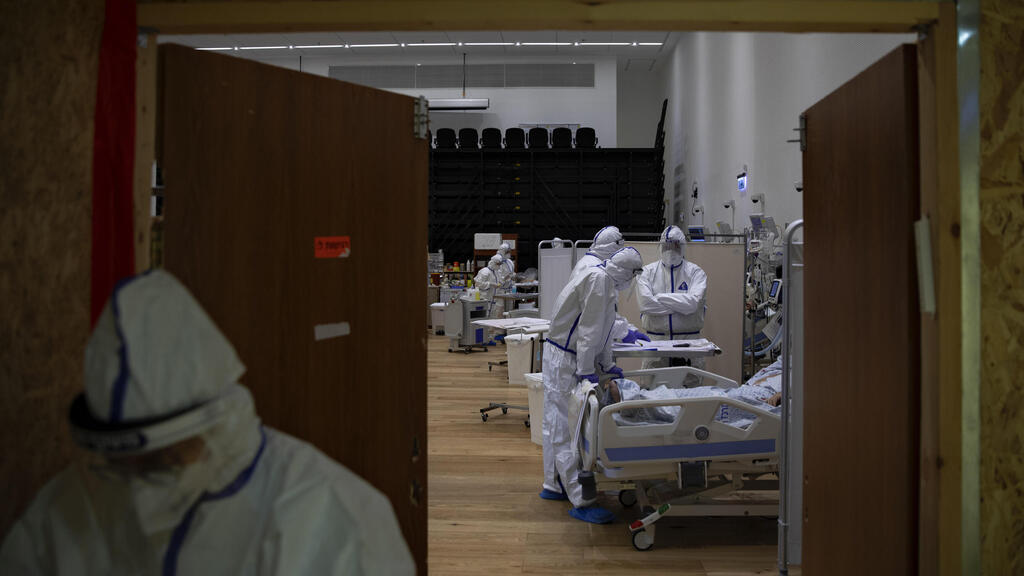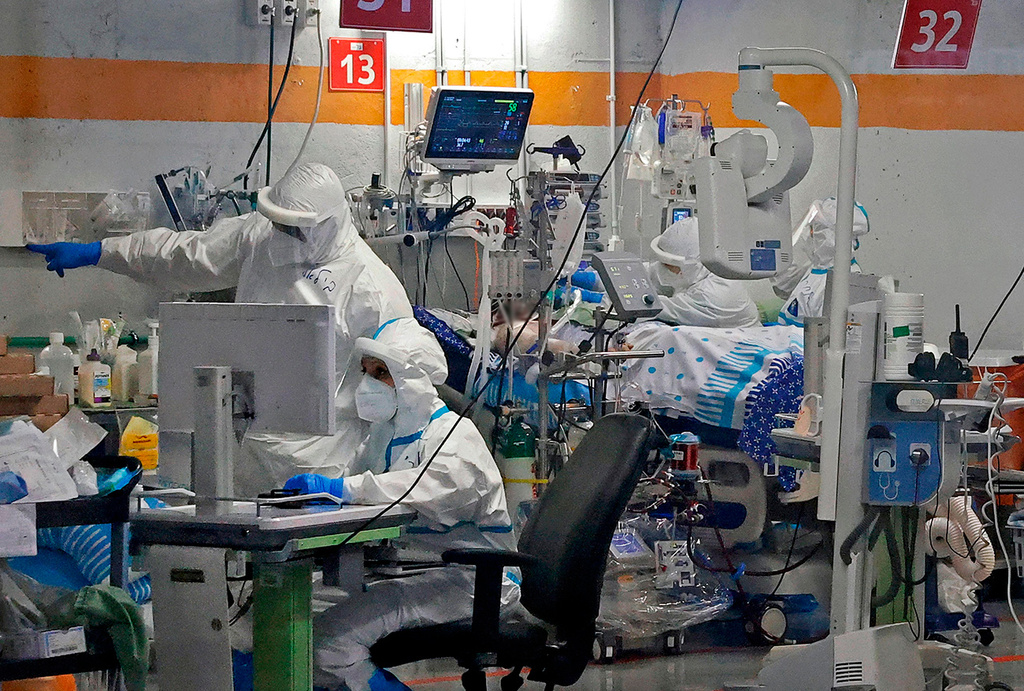Getting your Trinity Audio player ready...
This week, I visited the Intensive Cardiac Care Unit at Sheba Medical Center, where my sister-in-law is a senior nurse. As we were talking, one of the machines monitoring the patients started beeping.
Within a fraction of a second, the head nurse appeared in the adjacent room with a crash cart of resuscitation equipment. A couple of seconds later, three doctors and two more nurses raced in as well. I stepped outside.
Later, I heard that everything was fine. One of the patients had deteriorated, the staff reacted immediately, and the man, who was neither young nor healthy, was saved.
In unrelated instance two days later, I met with a friend who is a doctor at a coronavirus ward in one of the country's major hospitals.
When I told her how fast the medical team had reacted and that everything had ended well, she just sighed.
"I wish I could tell this is how it works with us too. What you saw there is not happening and will not happen with us, at least not in the near future, and when I say, 'the near future', I mean the coming months, not days," she said.
4 View gallery


An IDF soldier receives the COVID-19 vaccine at an army base in Rishon Lezion, Feb. 2021
(Photo: AP)
Last week, her ward counted another six dead. All had showed signs of distress that required immediate resuscitation. But the two nurses and three doctors – the number of staff who could have given at least some of the patients a fighting chance - were simply not there.
"People hear about the healthcare system collapsing, but they have no idea what it means in practice," she said. "It means that some patients we could have saved do die."
Just like that, they die. They pass away in great pain, taken from this world just to become another number in the tally of deaths that has been climbing for many months, leaving behind broken hearts and a sense of great frustration and grief for which there is no cure.
4 View gallery


Many Israelis refuse to get vaccinated against COVID-19 due to fake news online
(Photo: Shutterstock)
According to recent reports, 2.5 million Israelis over the age of 16 have yet to have the vaccine. Some 350,000 of them are over the age of 60 and are as such defined as a risk group.
Some of them might still be waiting to get the shot for logistical reasons, but others belong to a growing number of adherents of pseudo-science on the margins of our society as it grapples with the pandemic.
Israel can spend millions on education to combat half-truths disguised as scientific facts, but this is a battle that is unlikely to be won, if you will forgive the pessimism.
These are people who choose to listen to conspiracy theorists over the health experts who know a thing or two about vaccines.
These are the people who choose to rely on arguments that no living scientist can disprove.
These are the people who will end up in my friend's intensive care unit.
Worst of al, these are the people who will make others pay this heavy price as well.



